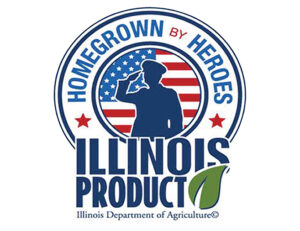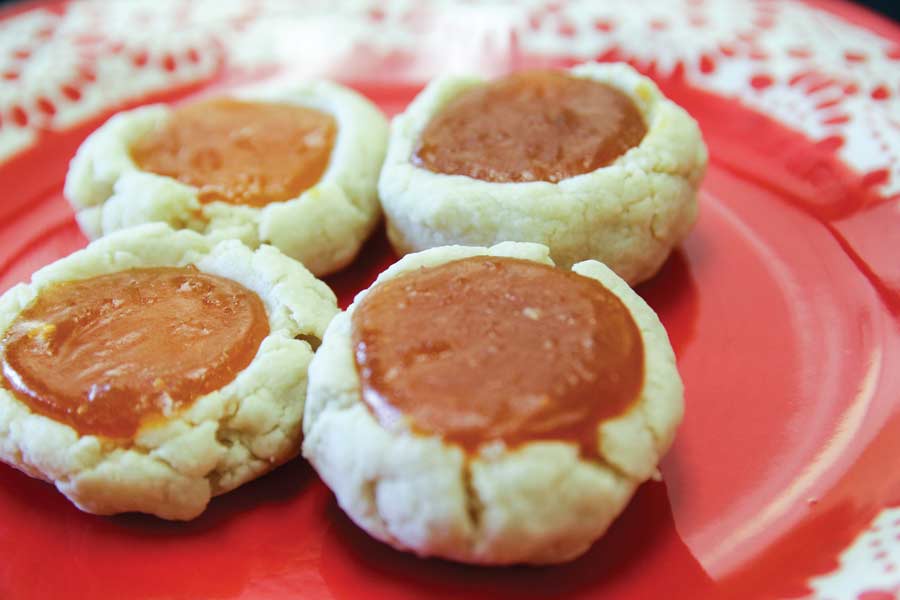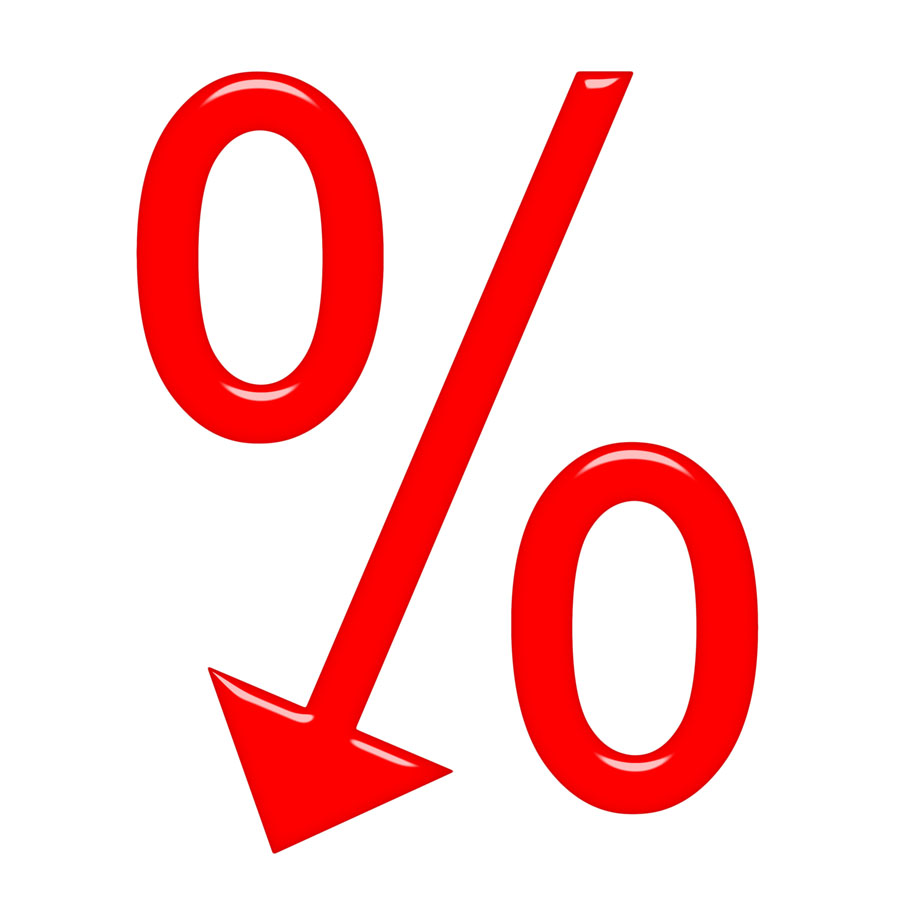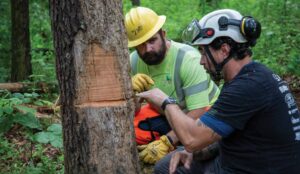Army veteran Brad Dearing never expected to be involved in farming. He enlisted in the Army straight out of high school and served two years of active duty in Germany. Afterward, he attended Western Illinois University to earn a degree in construction management, while also serving in the National Guard. He married and his first job took him to St. Charles, a far western suburb of Chicago.
But this country boy, who grew up in Petersburg, didn’t like the suburban life and longed to return to a more rural lifestyle closer to family, where he and wife Jackie could buy some land and build a house. They found land outside of Bloomington and built their dream home, while he taught and she worked at Country Companies. Life was good. However, sometimes life throws you a curveball, and in their case, it was a pregnancy. If they were going to raise a family, they wanted Jackie to be able to stay at home, but needed to find a way to replace her income.
 They talked to a farmer who was selling organic eggs and learned there was a need in that niche market. They bought 300 baby chicks and started raising chickens for eggs, which they sold at a local farmers’ market. Each week the Dearings had people asking about chicken meat, so they added more chickens. As folks inquired about beef, lamb and goats, the farm grew to accommodate those interests as well. They also planted vegetables and fruit trees. Although not certified organic, they follow organic protocols using a conservation method for growing and don’t spray their fruits and vegetables. Their chickens are free-range, and their cows are grass-fed.
They talked to a farmer who was selling organic eggs and learned there was a need in that niche market. They bought 300 baby chicks and started raising chickens for eggs, which they sold at a local farmers’ market. Each week the Dearings had people asking about chicken meat, so they added more chickens. As folks inquired about beef, lamb and goats, the farm grew to accommodate those interests as well. They also planted vegetables and fruit trees. Although not certified organic, they follow organic protocols using a conservation method for growing and don’t spray their fruits and vegetables. Their chickens are free-range, and their cows are grass-fed.
At a local farmer coalition meeting hosted by the Illinois Farm Bureau, the Dearings first heard about a program called Homegrown by Heroes (HBH). It is a state-branding program, started in Illinois in July 2015, that allows farmers and ranchers who have served, or are serving, in the U.S. military to use a specialized logo on their agricultural products. To qualify for the Homegrown by Heroes’ free certification, applicants must show proof of their military service, obtain a letter of support from their commanding officer or a designated representative, and be at least a 50 percent owner and/or operator of their farm business. Once certified, the veteran can use the logo on their product packaging and marketing materials.
Rural America has always been a big supporter of the U.S. military. While only 16 percent of the U.S. population lives in rural areas, 40 percent of those who serve come from rural communities. Many rural youth enlist in the military as a path to greater opportunities and to learn new skills.
Brad became the first Homegrown by Heroes member in Illinois and would like to see even more veterans involved in the program. There are currently 28 Illinois members.
“I’ve had people stop at my farmers’ market booth and thank me for my service as well as want to purchase from me because of my Homegrown by Heroes signage,” he explains. “By my posting and promoting HBH, I’ve also had fellow veterans and/or family members of veterans stop to talk and get more information about the program and agriculture in general.
“I think of HBH as a way I can reach out and possibly help other veterans that might be dealing with PTSD (post-traumatic stress disorder) or not being able to find a job,” says Brad. “I can tell them about the program and how the organization has the resources to try to help them onto that path to farming. The program has the resources to help them get started in the business.”
There is a physical toughness that military veterans seem to possess that is sometimes needed in agriculture. “It takes grit to be a farmer, and it’s not for the weak,” Brad notes. “There is no romance in farming. It’s a battle out there, dealing with long hours, dead animals, drought, weeds and bugs. It takes sweat, tears and blood to make this business work.”
 The Illinois Department of Agriculture (IDOA) is aiding veterans or current active duty military who are interested in agriculture through the Homegrown by Heroes program. By displaying the distinctive logo, the veterans have the opportunity to sell their products, and tell their stories. The logo serves as identification that the product(s) were grown, raised, or produced locally by a veteran and is an incentive to consumers when making purchasing decisions. Through the IDOA partnership with organizations such as the Illinois Farm Bureau, Farmer Veteran Coalition, Illinois National Guard, Illinois Veterans Affairs, and other farmer veterans training and education programs, resources are available to veterans with an interest in farming.
The Illinois Department of Agriculture (IDOA) is aiding veterans or current active duty military who are interested in agriculture through the Homegrown by Heroes program. By displaying the distinctive logo, the veterans have the opportunity to sell their products, and tell their stories. The logo serves as identification that the product(s) were grown, raised, or produced locally by a veteran and is an incentive to consumers when making purchasing decisions. Through the IDOA partnership with organizations such as the Illinois Farm Bureau, Farmer Veteran Coalition, Illinois National Guard, Illinois Veterans Affairs, and other farmer veterans training and education programs, resources are available to veterans with an interest in farming.
“This statewide collaboration is intended to assist our veterans pursuing a second career in agriculture,” says IDOA Director Raymond Poe. “There are great job opportunities in Illinois agriculture. If someone dreams of being a farmer, rancher or producer, we want to help fulfill those dreams.”
The HBH program helps to develop mentorships between experienced farmers and veterans. It also assists in identifying community land access that benefits beginning farmers, locates farmers’ market opportunities and partnerships, helps veterans develop value-added products, and fosters relationships with local retailers and restaurants. Illinois is third in the nation in the number of farmers’ markets which are ideal locations to showcase HBH products.
Any veteran of the U.S. military regardless of when, where, or how they served, and who has or is looking to start a farming operation or agribusiness, is eligible to participate in the Homegrown by Heroes program.
To learn more about the program, go to the IDOA site at www.agr.state.il.us/homegrown-by-heroes-il.










